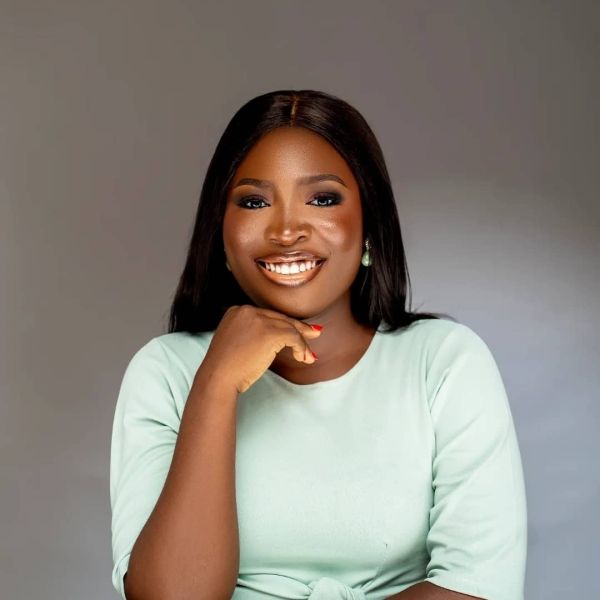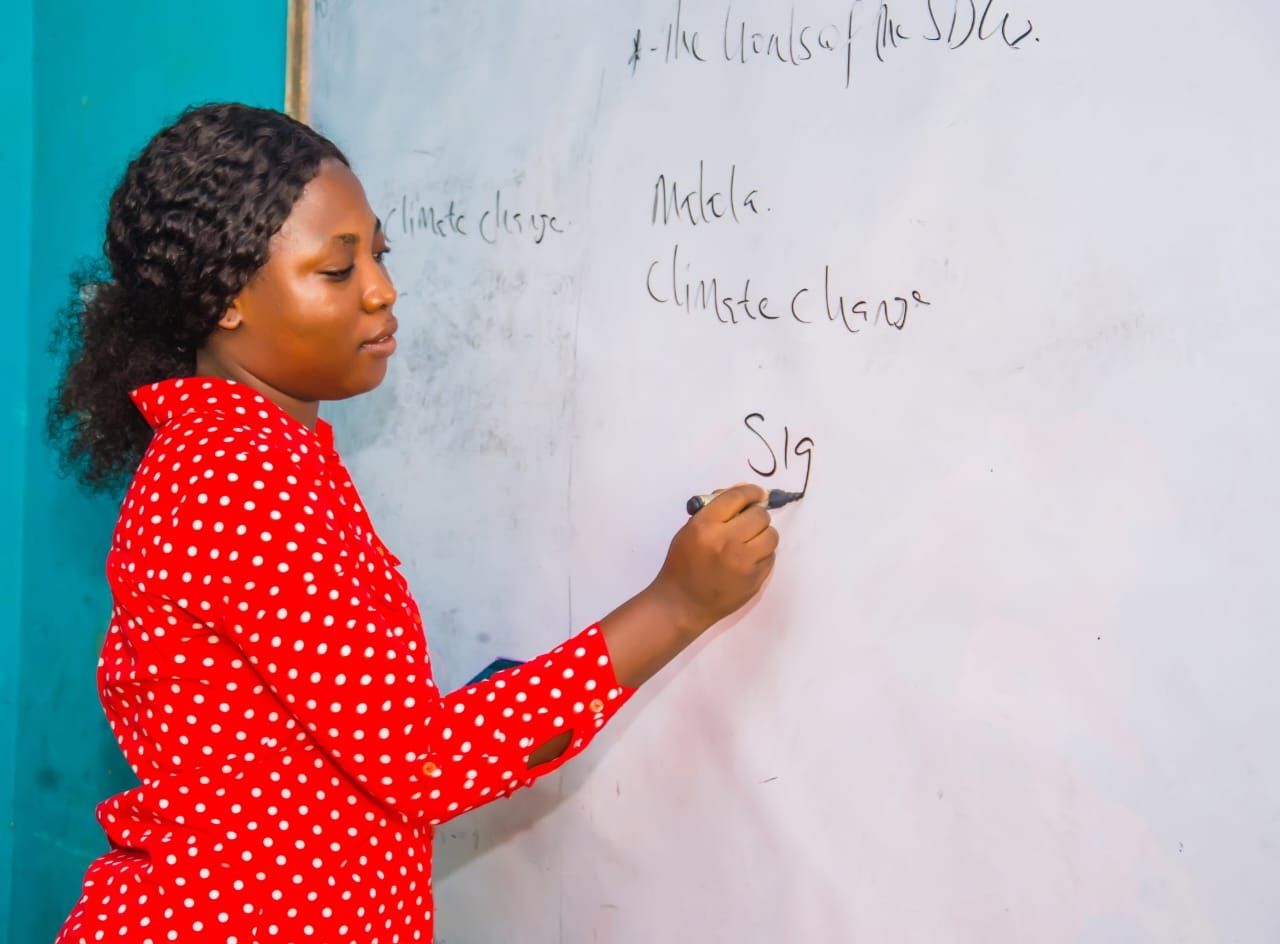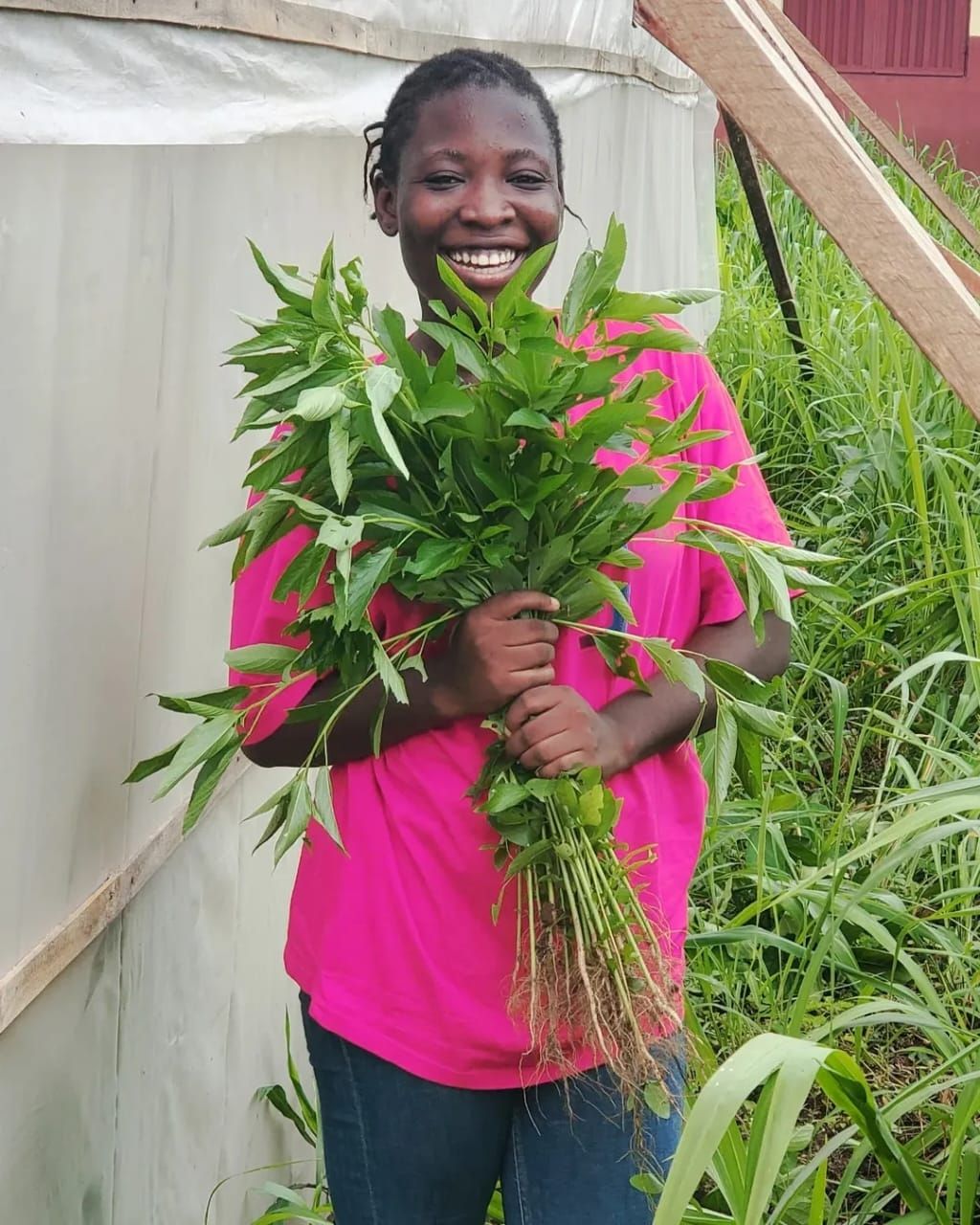Image

-
Jumoke Mujidat Omodeni (she/her)
Executive Director, Eco Science Generation Initiative
- 30 Under 30
- 2025
Jumoke is redefining climate action through people, knowledge, and purpose.
Nigeria, Age 28
How are you using education to build more sustainable and equitable communities? Tell us about your EE work and impact.
I use climate education to equip young people and communities with the knowledge, skills, and confidence to respond to climate change in ways that are practical, locally relevant, and sustainable. At the core of my work is my dedication to advancing climate literacy and empowering individuals and communities to become informed, towards strengthening their resilience to climate change. Through programs that I have designed, such as the Climate Research and Communication Workshops, every year over 50 youth from across Africa gain knowledge to analyze climate challenges and contribute to solutions in their own communities through research and collaboration. Other projects, like SACA project, empowers youth and school children to upskill on sustainable agriculture, greenhouse farming, and leadership, including hands-on experiences such as building greenhouses as classrooms for innovation and resilience. Most recently, we onboarded over 300 participants of Project Athena, a project designed to train people, especially women, on digital storytelling to build capacity and agency to inspire inclusive climate action in African societies. I use education as a springboard to raise public understanding of climate issues, strengthen communities, and drive climate action rooted in the strengths of the people themselves.
Tell us about your journey to where you are today. What inspired you? What has your path been like?
My journey into climate action has been shaped by both the positive realities I grew up with -- having grown in tune with nature-- and the gaps I observed in how we respond to crisis that threatens nature. I noticed early on that social problems are deeply interconnected, and their root often lies in lack of inclusion or quality governance. The turning point for me came when I observed that scientific research, which should guide solutions in Africa, is often absent or underused, influenced by conflicting donor agendas that steer science away from local priorities. This insight drove me to start advocating for Nigeria to lead its own research, even when the idea was met with public skepticism. I wanted solutions that are practical, community-centered, and informed by local evidence. That conviction led to founding EcoSciGen, and has grown into a platform addressing cross-cutting climate challenges with one goal: a resilient Nigeria and Africa. Along the way, I’ve had to navigate a climate space increasingly focused on visibility, trends, and performative metrics. Staying true to my values has reinforced my belief that meaningful impact comes from depth, integrity, and empowering people, a principle that continues to guide my work and shape my growth as a climate leader.
How can people learn more about or support your work?
People can learn more about my work through my social media pages (LinkedIn and Instagram). You can also support my work through Eco Science Generation Initiative (EcoSciGen), where all my climate programs are coordinated. The EcoSciGen website has information on current projects and workshops. People can support EcoSciGen in different ways, volunteering as a mentor or facilitator, collaborating on research or training programs, contributing resources to expand our reach, or helping share knowledge and tools in local communities. Beyond formal support, simply engaging with our work, amplifying our messages, or applying what you learn in your own context helps strengthen the capacity of youth and communities to lead sustainable, inclusive climate solutions.
A Little More About Me
What advice would you give to the next generation of leaders?
Don’t build because others are doing it. Ask deep questions. If you have to question the UN, question them. Understand how systems work and aim for real impact, not numbers or clout. Maintain your authenticity; the world may not get it at first, but it’ll catch on eventually. Be courageous. When you show up with integrity and fill a room with your presence, people will question you, feel threatened, and try to dismiss you. Stay composed. Speak up when you need to.If you could be any animal or plant, what would you be and why?
I’d be a peace lily because it represents peace, purifies the air by taking in CO2, and thrives quietly yet purposefully. I like the idea of being something that brings calm, contributes positively to its surroundings, and supports life in a subtle but meaningful way.What are you happiest doing?
I’m happiest cooking food from different cultures and continents. It’s my way of learning about the world and its history, since I often avoid reading long historical texts. Through food, I connect with other people’s stories, traditions, and ways of life, and I get to create something tangible and delicious from that experience.How do you recharge?
I recharge by dancing and sleeping. Dancing helps me release stress and reconnect with joy, while sleep gives me the calm and clarity I need to start again.



